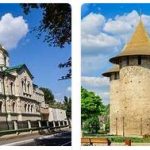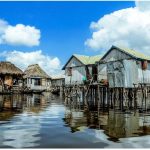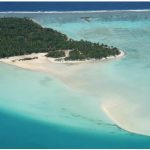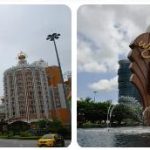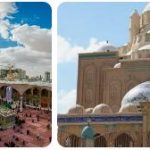Senegal: Various travel information
How do you get to Senegal?
Flight
Air France offers scheduled flights to Dakar (via Paris). But Iberia (via Madrid), TAP (via Lisbon), Air Brussels (via Brussels) and Royal Air Maroc (via Casablanca) also fly to Dakar. Afriqiyah Airways offers the Düsseldorf, Tripoli and Dakar routes twice a week. With the help of airlines such as Air Senegal, Air Ivoire, Kenya Airways and Ethiopian Airlines, Senegal is connected to other parts of West Africa. South African connects Senegal with South Africa.
Ship
There are regular ship connections from France, Spain, the Canary Islands, Morocco and several South American and West African ports to Senegal. The main port in the country is in Dakar.
Rail
There is a rail link between Dakar and Bamako in Mali. However, the departure times change often.
Car/bus
There are roads from Senegal to the neighboring countries of Mauritania, Guinea-Bissau and Mali.
Travel in the country
Air
connections Air connections exist between the larger cities in the country. There are also regular flights to Banjul, the capital of Gambia.
Ferry
connections Ferry connections exist between Dakar and Ziguinchor, Banjul (Gambia) and to Gorée Island.
On September 26, 2002, the Senegalese ferry “Le Joola”, which was on a journey from Ziguinchor in southern Senegal to Dakar, capsized off the coast of Gambia. The ferry, which was only approved for around 550 people, was hopelessly overloaded with over 1,900 passengers. According to official figures, 1,863 people were killed in the accident.
Railway
The railway network in Senegal covers a total of around 1,000 km. The railway line from Dakar to Bamako in Mali runs through several Senegalese cities. There is also a connection from Dakar to Saint-Louis.
Minibuses
In Senegal, minibuses, so-called taxi brouses or bush taxis, run. They go back and forth between all the larger villages and are very inexpensive. You simply stop them on the street, but then you still have to clarify which direction the bus is going. The departure times for longer journeys are almost never met. In addition, you should be prepared for very full buses.
Bus transport
There is also a national bus network that connects the cities and rural communities of Senegal. There are different types of intercity buses. Seats for the coaches can be booked in advance. These run regularly and mostly on time and go back and forth between the larger cities. There are also the minibuses already described, which also serve fixed routes, but allow individual entry and exit. Finally, so-called Sept-Places run. These are eight-seat Peugeot station wagons that have seen better days. Like the minibuses, the Sept-Place usually leave from the city’s bus station, known as the Gares Routières. Both minibuses and Sept-Places only leave when they are full. This means,
Taxis
It is better to negotiate taxi prices before starting your journey, especially for longer overland journeys.
Car traffic and rental cars
There are around 4,300 km of paved roads in Senegal. The road network along the coast is paved, but driving conditions in the interior are less good and many roads are impassable during the rainy season. The traffic conditions in Dakar are more chaotic than in the rest of the country. Otherwise, driving in Senegal is quite pleasant, as there is little traffic outside of the larger cities. The only problem is the potholes, which is why it is better not to drive at night. Tarred main roads are the exception, so it is advisable to use a four-wheel drive vehicle in the interior of the country.
The best way to hire a car is in Dakar, where all the major car rental companies are based. A French or an international driver’s license and the green insurance card are required for rental cars.
Traffic rules
Right-hand traffic prevails in Senegal. In order to avoid trouble with the police or even the courts, one should strictly adhere to the traffic regulations in force in the country. The maximum speeds shown can of course be reduced or increased by traffic signs. Regardless of the information provided here, it is advisable to obtain detailed information from the ADAC, the AvD or the traffic clubs in the country concerned.
Top speeds
- Urban: in built-up areas there is a speed limit of 50 km/h
- Country roads: there is a speed limit of 60 km/h on country roads
- Motorways: there is a speed limit of 100 km/h on motorways
International license plate
Senegal’s license plate is:
| SN |
Entry and exit regulations
Formalities, visas
Tourists from Germany, Austria and most EU countries (but not Switzerland) do not need a visa to enter Senegal for a stay of up to 90 days. The passport should be valid for another six months. A return or onward ticket is also required. A valid yellow fever vaccination must be proven when entering from a yellow fever infection area.
Visa department of the Embassy of Senegal
Dessauerstr. 28/29
10963 Berlin
Tel: 0049 (0) 30 – 85 62 190
Fax: 0049 (0) 30 – 85 62 19 21
Email: gueye@botschaft-senegal.de
Consulates
s. with representations from Senegal in Germany, Austria and Switzerland.
Issuing of visas in Austria and Switzerland
See under Representations of Senegal in Austria and Representations of Senegal in Switzerland.
Senegal: currency, shopping
National currency
The national currency of Senegal is the CFA Franc
1 CFA franc = 100 centimes.
Senegal is part of the West African Economic and Monetary Union. The ISO 4217 code of the Franc CFA here is XOF. The CFA franc (Communanté Financiére Africaine) is the currency in 14 African countries that were usually French colonies in the past: Equatorial Guinea, Gabon, Cameroon, Republic of the Congo, Chad, Central African Republic, Benin, Burkina Faso, Côte d’Ivoite, Guinea-Bissau, Mali, Niger, Senegal and Togo.
Exchange rate
The exchange rate of the euro and the CFA franc is always the same as the CFA franc is pegged to the euro (it was pegged to the franc before the euro was introduced). For countries that belong to the West African Economic and Monetary Union, the exchange rate is:
1 Euro (€) = 655.957 CFA francs (XOF)
Import and export of foreign currency
- Local currencyThe import of the local currency is permitted without restrictions, the export is limited to 20,000 CFA Fr.
- Foreign currenciesThere is no limit to the importation of foreign currencies, but a declaration is required. The export is permitted up to the equivalent of 1 million CFA Fr.
Inexpensive goods, souvenirs
Tourists in Senegal like to buy wood carvings such as masks, statues and game boards, local musical instruments as well as fabrics, embroidery and clothing, ceramic goods and traditional jewelry.
Travel medicine, vaccinations and warnings
Infectious Diseases
The following are to be expected in infectious diseases in Senegal:
- Malaria Across the country, including in cities, there is a high risk of malaria. About 85% of the infections occur with the very dangerous ‘Malaria tropica’.
- Because of the risk of infection with HIV, it is essential to use condoms during sexual intercourse. For syringes, e.g. for medical reasons, only use sterile disposable syringes. Avoid blood transfusions at all costs.
- With the prevalence of schistosomiasis (lakes, rivers, streams or ponds) can be expected nationally in fresh water.
- Chikungunya is a serious viral infection which is not fatal for a healthy adult human and is transmitted by the mosquito “Aedes albopictus” (tiger mosquito). The name of the disease comes from the East African Swahili (Kiswahili) language and roughly means: “who walks crookedly”.
- cholera
- dengue fever
- Various intestinal infections such as worm infestation, salmonella, Shigella, amoeba or lamblia
- Filariasis
- Typhus
- Yellow fever
- Lassa fever
- Leishmaniasis
- Hepatitis A and B
- Kala-Azar – this infectious disease occurs mainly in semi-arid areas.
- Sleeping sickness
- Rabies – therefore beware of dogs, cats, foxes and also mice
- Tick bite fever
Vaccination recommendations
- Hepatitis A and B
- Yellow fever
- tetanus
- Rabies (especially for tour groups, such as backpackers who take their water from rivers or streams, hunters, forest staff)
- typhus
- Meningococci
- polio
- diphtheria
Compulsory vaccination
For all persons older than a year and arriving from a yellow fever infection area designated by the WHO, there is a compulsory vaccination against an illness with yellow fever.
Yellow fever vaccination for children
In most of the countries in which a yellow fever vaccination is required, this also applies to children over one year of age, in some countries even from six months. It should be noted that vaccination against yellow fever had a number of side effects, such as encephalitis. Around two-thirds of those affected were children under six months. Therefore, under no circumstances should children under this age be vaccinated. But children under one year of age should also not be vaccinated if possible. If in doubt, yellow fever infection areas must then be avoided. Any vaccination against yellow fever may only be carried out in specially authorized yellow fever vaccination centers!
Malaria prophylaxis
When traveling in the country, it is strongly advised to undergo malaria prophylaxis. However, if the side effects seem questionable to you, you should at least have a “stand-by preparation” with you.
Senegal: Diplomatic missions
Representations of Senegal in Germany
Embassy in Berlin
Klingelhöferstr. 5
10785 Berlin
Tel.: +49 – (0) 30 – 856 219 0
E-Mail: info@botschaft-senegal.de
www.botschaft-senegal.de
German representations in Senegal
Embassy of the Federal Republic of Germany in Senegal
20, Avenue Pasteur, intersection Rue Mermoz
Dakar
Tel: 00221 – (0) 338 – 894 884
Fax: 00221 – (0) 338 – 225 299
E-Mail: info@dakar.diplo.de
www. dakar.diplo.de
The German embassy in Senegal is still responsible for:
- Gambia
- Guinea-Bissau
- Cape Verde
Austrian representations in Senegal
Embassy in Dakar
18, rue Emile Zola
Dakar
Tel: 00221 – (0) 33 – 849 4000
Email: dakar-ob@bmeia.gv.at
The Austrian Embassy in Senegal is still responsible for:
- Burkina Faso
- Ivory Coast
- Gambia
- Guinea
- Guinea-Bissau
- Cape Verde
- Liberia
- Mali
- Niger
- Sierra Leone
Honorary Consulate General in Innbruck
Kohlstattgasse 3
6020 Innsbruck
Tel: 0043 – (0) 512 – 588 957
Honorary Consulate General in Salzburg
Getreidegasse 22
5020 Salzburg
Tel: 0043 – (0) 662 – 648 484 22
Honorary Consulate in Vienna
Kohlmarkt 3/8
1010 Vienna
Tel: 0043 – (0) 1 – 512 85 76
Swiss representations in Senegal
Embassy in Dakar
Rue René N’Diaye Intersection Rue Seydou
Nourou Tall
Dakar
Senegal
Tel: 00221 – (0) 33 – 823 0590
Fax: 00221 – (0) 33 – 822 3657
Email: dak.vertretung@eda.admin.ch
Representations of Senegal in Switzerland
Embassy in Geneva
Rue de la Servette 93
1202 Geneva
Tel: 0041 – (0) 22 – 918 02 30
Email: mission.senegal@ties.itu.int
Consulate in Lausanne
Route de Berne 25
1010 Lausanne
Tel: 0041 – (0) 21 – 652 18 42
Email: anfelix@swissonline.ch
Consulate in Lugano
Via F. Pelli 2
6900 Lugano
Tel: 0041 – (0) 91 – 921 22 21
Email: ius@rrbp.ch
Consulate in Zurich
Schifflände 22
8024 Zurich
Tel: 0041 – (0) 1 – 251 19 45
Email: rippmann@swissonline.ch

